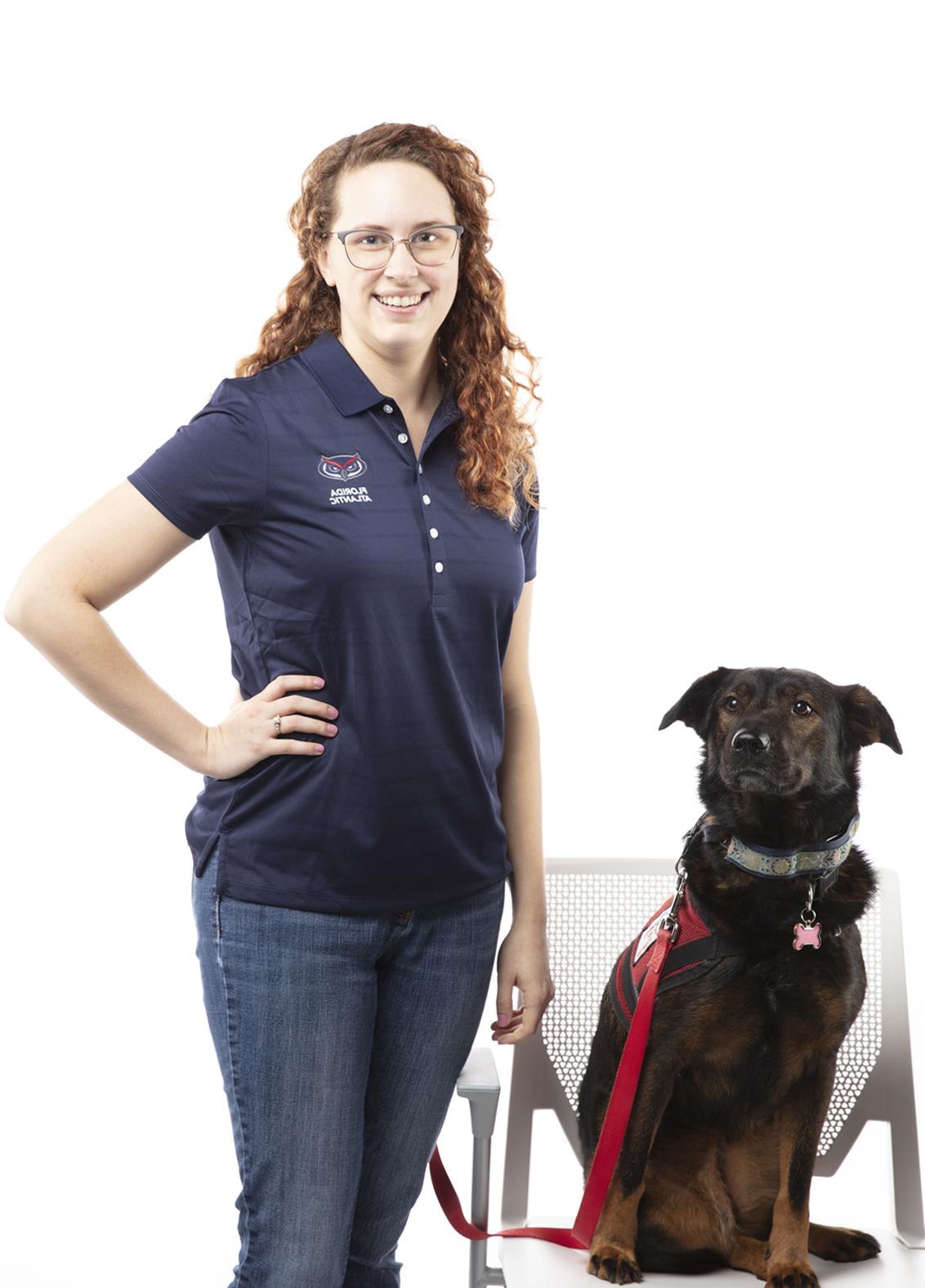Emily Stark

Degree Program
Experimental Psychology
Tell us about yourself:
I am a Ph.D. student in the psychology department, and my research focuses on artificial intelligence (AI) and robotic olfaction. I work in the Machine Perception and Cognitive Robotics Laboratory (MPCR Lab) with collaborators all over the world.
What are you currently working on?
Artificial Intelligence for Robotic Olfaction Applications - Every minute of every day your body is undergoing different processes that help you metabolize food, fight infection, and even experience emotion. All of these processes have by-products, meaning there is left over stuff from the chemical reactions that have to be flushed out of the body. So many of these by-products leave our body in gaseous form, meaning they are smell-able, even if we don't realize it. By taking non-invasive samples of breath, urine, sweat...you name it...we can use powerful AI tools to find patterns of the by-products in the smell of the samples, that can tell us everything from who is happy to who has cancer.
Why did you choose this project?
My interest in information that is "smell-able" came from my Diabetic Alert Dog, Nara. She is able to, by smell, warn me when my blood sugars are going to change dramatically and I can take proactive care of my type 1 diabetes. Before Nara, I had no idea that we were constantly giving off so much information and now I am curious about all of the other internal states she is aware of solely through her nose.
What do you hope to accomplish with this project?
By working closely with leaders in the field of robotic olfaction, I have access to large amounts of patient data that is simply too big to use traditional statistics on. AI is able to propel the work that others have begun in order to build better, faster, and cheaper diagnostic tests for life-threatening conditions.
What advice would you give to a new student interested in working in the Gruber Sandbox?
Stay curious! I jumped into my field without having an extensive chemistry, medical, or engineering background, but I was incredibly interested. Being internally motivated helped me put in the work to understand basic concepts in the field, brought me some fantastic networking and collaborating opportunities, and led to success in a very exciting field.